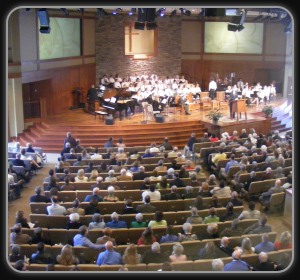|
Home | Blog Index | Blog Archives | Christianity & Faith Essays | Storm Chasing Essays
The myths of 'organized religion'
|
In September of 2025, my work is generating the most income it ever has in my career. Yet, I'm being forced to shut down my successul operation, against my will, due to one cause alone: 95% of that revenue is being stolen by piracy and copyright infringement. I've lost more than $1 million to copyright infringement in the last 15 years, and it's finally brought an end to my professional storm chasing operation. Do not be misled by the lies of infringers, anti-copyright activists and organized piracy cartels. This page is a detailed, evidenced account of my battle I had to undertake to just barely stay in business, and eventually could not overcome. It's a problem faced by all of my colleagues and most other creators in the field. |
I apologize if the larger-than-usual number of Christianity-themed posts this year seems excessive, but I've had posts on several important issues in the queue for some time, and am finally getting around to finishing them.
There is a massive amount of misinformation being used against Christianity in today's age, mostly by people who are either completely disconnected from the faith or previously involved with the unfortunate heretical factions. Once again, I completely support one investigating all sides before committing one way or another in the realm of faith - but there are a few conspiracy theory-grade myths that are often used by individuals to rationalize avoiding faith in Christ altogether. (I already covered the 'Jesus never existed' myth in a recent post, for example).
One of the more prominent of those myths is the universal corruption of so-called 'organized religion'. In this myth, all of Christianity is lumped together into one massive unit in which the leadership exists only to deceive followers into committing themselves emotionally and financially to the sustenance of the 'establishment' - while the leaders live lavish lifestyles, and the parishoners struggle in poverty. As with all myths, there is some truth peppered into it. Some so-called Christian denominations have a long legacy of financial mismanagement, systemic deception/control issues, and corruption on an individual and leadership-wide scale. This has existed in some form in any denomination to varying degrees. However, these 'bad apples' are the exception rather than the rule, and it's completely inexcusable, not to mention violating the skeptic's cherished logic and reason, to use these to characterize the whole of the 'real' Christian church.
 First of all, the 'church' is comprised of numerous denominations and different organizational structures. The Catholic church structure is the one the general public-at-large is probably the most familiar with, due to their large prominence in western society and the media - but in terms of numbers, they aren't representative of the Christian population in general (I make no statement for or against Catholics there, by the way). Aside from a few churches within mainline denominations, virtually no church is exactly the same. As such, choosing a church to attend is not a decision to take lightly, and one should do their research on a denomination or church before committing to membership. That alone will help one avoid the majority of unfortunate sour experiences that are possible when not 'doing your homework', just as it happens with most any other decision in life (who to marry, what car dealership to buy from, what apartment complex to live in, etc.). First of all, the 'church' is comprised of numerous denominations and different organizational structures. The Catholic church structure is the one the general public-at-large is probably the most familiar with, due to their large prominence in western society and the media - but in terms of numbers, they aren't representative of the Christian population in general (I make no statement for or against Catholics there, by the way). Aside from a few churches within mainline denominations, virtually no church is exactly the same. As such, choosing a church to attend is not a decision to take lightly, and one should do their research on a denomination or church before committing to membership. That alone will help one avoid the majority of unfortunate sour experiences that are possible when not 'doing your homework', just as it happens with most any other decision in life (who to marry, what car dealership to buy from, what apartment complex to live in, etc.).
I have been a Christian for over 19 years, and have been members in several denominational and non-denominational churches as well as taking part in projects, trips, Bible studies, etc with still other denominations. A few of these I was heavily involved in, closely interacting with the leadership and decision-making of day-to-day issues. In all my experiences with every church I've been a member of, I have seen absolutely no evidence in leadership of anything other than a deep commitment to Christ and seeing His message advanced. Pastors and staff survived on minimal salaries (less than I make!), drove old, beat-up, outdated vehicles, and made great personal sacrifices for the sake of the church and its members. I've had pastors who had to work other jobs to support their families - one a salesman, another a coal miner. You'd be surprised to learn just how little pastors of even some of the larger churches I've been a member of have been living on. I may be simply blessed and/or a little fortunate to have avoided being entrapped or deceived by the 'bad apples' that exist out there, but nonetheless, the fact remains that my experiences over 19 years ought to hold some sway with you.
Here's a little lesson on organizational structure of churches for those who have never been involved in one. First, in most cases, the pastor does not have 'supreme power' over the church. While a leader with some decision-making responsibilities, he is accountable to the membership and to the denomination for *everything*. In this sense, the 'organized' part of the term 'organized religion' is in place for accountability, not to enable the leadership to manipulate 'followers'. For a non-denominational church (and some denominational ones) the senior pastor is typically chosen by a democratic vote of the entire membership. In some cases, a search committee (made up of members) is tasked with locating and researching nominees. When a candidate is found, the membership then votes on whether or not to accept him as pastor. The membership (via a membership-decided leadership staff called elders) decides how much the pastor is paid, not the pastor! The way most churches are structured, the pastor cannot manipulate the system for his financial benefit. In some mainline denominations, pastors are appointed to churches by the denominational leadership - again, democratically-held positions that have inherent accountability and representation from the general membership of affiliated churches. Most pastors cannot expect to life a healthy financial life, regardless of the size of church they end up at. In addition to this, the membership has the collective power to fire anyone in the staff, including the pastor, should any hint of impropriety arise.
 Now let's talk about church budgets and finances - another point ripe for the development of myths. Most church budgets are fully transparent, with anyone able to see where money is going should they desire. Offerings are taken because the building takes money to light, heat, cool, maintain and insure. The offerings don't affect the pastor's salary nor that of any of the staff! A large amount of money is used for mission work, either locally or abroad. It takes money to help people and keep the lights on, how else should those funds be raised? Not once in 19 years have I ever seen my church's finances used to lavish luxury on any leader, pastor or staff member. It's all been used for the cause of the church and to minister to people. Again, I know there are 'bad apples', but logically and rationally, you cannot characterize the entire of Christianity by those anomalies! It's just not the truth, and if the truth matters to you, you shouldn't ignore that. Now let's talk about church budgets and finances - another point ripe for the development of myths. Most church budgets are fully transparent, with anyone able to see where money is going should they desire. Offerings are taken because the building takes money to light, heat, cool, maintain and insure. The offerings don't affect the pastor's salary nor that of any of the staff! A large amount of money is used for mission work, either locally or abroad. It takes money to help people and keep the lights on, how else should those funds be raised? Not once in 19 years have I ever seen my church's finances used to lavish luxury on any leader, pastor or staff member. It's all been used for the cause of the church and to minister to people. Again, I know there are 'bad apples', but logically and rationally, you cannot characterize the entire of Christianity by those anomalies! It's just not the truth, and if the truth matters to you, you shouldn't ignore that.
Next, the term 'followers' is another misunderstood term. Members of a church are not 'followers' of the church, nor the denomination, nor the pastor. I don't, nor have I ever, 'followed' an organization or leader. Again, there are 'bad apples' where the opposite of that may be true - but, I'll say it a hundred times, it is NOT characteristic of ALL churches. We are individual followers of *Christ*, and 'organize' into groups called 'churches' because that is what Christ instructed in the reliable record of the New Testament we have.
Again, you do have to be careful in choosing a church, because the 'bad apples' are out there. If you happened to choose one of them in the past and had a bad experience, that is unfortunate - but the simple fact is that you cannot judge the whole of Christianity on that experience. Again, if you're on a sincere search for truth, let logic and reason prevail - don't adopt the 'conspiracy theorist' mindset, look for the facts.
|